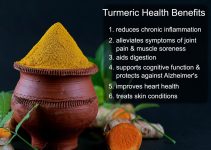
Table of Contents
What are the health benefits of carrots?
Carrots are one of the most popular and nutritious root vegetables worldwide, cherished for their vibrant color and crisp texture. Packed with beta-carotene, fiber, essential vitamins, and potent antioxidants, they offer a bounty of health benefits. These nutrients support eye health, boost immune function, and promote digestive health.
However, as with any food, moderation is key. Consuming too many carrots can lead to an excess of beta-carotene in the body, potentially causing a harmless but noticeable orange tint to the skin known as carotenemia.
Additionally, some individuals may experience sensitivities or allergic reactions to carrots. Therefore, while carrots are a delightful and healthy addition to your diet, it’s important to enjoy them as part of a balanced and varied nutritional plan.
Find out in more detail the fascinating secrets of this everyday vegetable that we often enjoy without realizing its incredible health benefits. Discover what makes this nutrient-packed powerhouse a must-have in your diet!
Would you like to know more about its specific health advantages? Read on.
7 Health Benefits of Carrots
Carrots are not only a delicious and versatile vegetable but also a powerhouse of nutrients that provide numerous health benefits. Below, we explore how incorporating carrots into your diet can enhance your well-being.
1. Improved Vision
Carrots are rich in beta-carotene, which converts into vitamin A—a nutrient essential for maintaining good vision. A deficiency in vitamin A can lead to night blindness and other eye issues. Moreover, lutein and lycopene in carrots help preserve night vision and overall eye health.
2. Reduced Cancer Risk
A comprehensive analysis of the relationship between carrot consumption and cancer risk by a team of researchers (Ojobor et al., 2023) revealed that consuming carrots is linked to a reduced likelihood of developing cancer. Carrots contain beneficial compounds like polyacetylenes, which are believed to have cancer-inhibiting properties.
Additionally, α-carotene, a marker found in carrots, indicates higher intake is associated with lower cancer rates. The study suggests that regular carrot consumption exhibits a linear relationship with reduced cancer risk, emphasizing the health benefits of incorporating carrots into a balanced diet. The findings promote the idea of encouraging carrot consumption as part of public health strategies to lower cancer risk.
The way the carrots were grown also potentially determine its efficacy in reducing colon cancer. A team of researchers (Pan et al., 2025) found that carrots, especially those grown with deep sea mineral fertilizers, can help reduce colon cancer in mice by promoting cell death, reducing inflammation, and altering gut bacteria.
3. Heart Health
Regular consumption of carrots has been linked to lower cholesterol levels, a significant factor in heart disease prevention. The fiber in carrots aids in removing excess LDL cholesterol from the artery walls, promoting heart health.
In a study conducted by Eromosele et al. (2024), carrots significantly lowered total blood cholesterol in rats, suggesting they have cholesterol-reducing properties that can contribute to heart health.
4. Weight Loss Support
With their low calorie and high fiber content, carrots promote a feeling of fullness, helping to prevent overeating. Including carrots in a weight loss diet can be beneficial due to their blend of soluble and insoluble fibers.
5. Enhanced Digestion
Carrots are high in dietary fiber, which is essential for good digestive health. The fiber adds bulk to the stool, preventing constipation and promoting regular bowel movements.
6. Boosted Immunity
Rich in vitamin C, carrots are a great source for boosting your immune system. This vitamin plays a vital role in helping the body fight off infections and diseases.
7. Healthy Skin
The antioxidants in carrots protect the skin from damage, reducing the risk of wrinkles and other aging signs. Vitamin A not only helps protect the skin against harmful UV rays but also keeps it hydrated.
Incorporate carrots into your daily diet to leverage these incredible health benefits. Whether you enjoy them raw, juiced, or cooked, they make a delicious and nutritious addition to any meal.
Carrot Recipes to Try at Home to Gain the Health Benefits of Carrots
1. Classic Carrot Soup
Ingredients:
- 1 lb carrots, peeled and chopped
- 1 onion, diced
- 2 cloves garlic, minced
- 4 cups vegetable broth
- 1 cup coconut milk
- 1 tbsp olive oil
- Salt and pepper to taste
- Fresh thyme for garnish
Instructions:
- Heat olive oil in a large pot over medium heat. Add onion and garlic, sauté until translucent.
- Add carrots and vegetable broth. Bring to a boil, then reduce heat and simmer until carrots are tender.
- Blend the mixture until smooth. Return to the pot, stir in coconut milk, and heat through.
- Season with salt and pepper. Serve hot, garnished with thyme.
2. Carrot and Chickpea Salad
Ingredients:
- 2 cups shredded carrots
- 1 can chickpeas, drained and rinsed
- ¼ cup chopped parsley
- ¼ cup crumbled feta cheese
- 2 tbsp lemon juice
- 3 tbsp olive oil
- Salt and pepper to taste
Instructions:
- In a large bowl, combine shredded carrots, chickpeas, parsley, and feta cheese.
- In a separate bowl, whisk together lemon juice, olive oil, salt, and pepper.
- Drizzle the dressing over the salad, toss well to coat. Serve chilled or at room temperature.
2. Carrot and Chickpea Salad
Ingredients:
- 2 cups shredded carrots
- 1 can chickpeas, drained and rinsed
- ¼ cup chopped parsley
- ¼ cup crumbled feta cheese
- 2 tbsp lemon juice
- 3 tbsp olive oil
- Salt and pepper to taste
Instructions:
- In a large bowl, combine shredded carrots, chickpeas, parsley, and feta cheese.
- In a separate bowl, whisk together lemon juice, olive oil, salt, and pepper.
- Drizzle the dressing over the salad, toss well to coat. Serve chilled or at room temperature.
3. Spiced Carrot Muffins
Ingredients:
- 1½ cups all-purpose flour
- 1 tsp baking powder
- ½ tsp baking soda
- 1 tsp cinnamon
- ½ tsp nutmeg
- ½ cup sugar
- ½ cup brown sugar
- 2 eggs
- 1 tsp vanilla extract
- ½ cup butter, melted
- 1½ cups grated carrots
Instructions:
- Preheat the oven to 350°F (175°C). Line a muffin tin with paper liners.
- In a bowl, mix flour, baking powder, baking soda, cinnamon, and nutmeg.
- In another bowl, whisk together sugars, eggs, vanilla, and melted butter. Stir in grated carrots.
- Combine the wet and dry ingredients until just mixed. Divide the batter among muffin cups.
- Bake for 20-25 minutes or until a toothpick inserted comes out clean. Let cool before serving.
Side Effects of Consuming Too Many Carrots
While carrots are packed with nutrients and offer numerous health benefits, it’s important to be aware of the potential side effects that can occur with excessive consumption.
1. Allergic Reactions
Some individuals are hypersensitive to carrots, experiencing symptoms such as skin rashes, diarrhea, anaphylactic reactions, hives, and swelling. These allergies are triggered by allergens present in carrot pollen. Those with known allergies should avoid carrots and consult with a healthcare professional.
2. Carotenemia

High levels of beta-carotene in carrots can lead to carotenemia, a condition that causes the skin to develop a yellowish-orange tint. While generally harmless, reducing carrot intake usually resolves this condition.
3. Impact on Blood Sugar
Due to the high sugar content in carrots, individuals with diabetes need to be cautious. Carrots can raise blood sugar levels, but steamed carrots in small amounts are a better option for diabetic individuals seeking to enjoy this nutrient-rich vegetable.
4. Changes in Breast Milk Flavor
Breastfeeding mothers should be aware that consuming large quantities of carrot juice can alter the flavor of breast milk. This may affect the infant’s feeding response, so it’s best to moderate carrot juice consumption during this period.
5. Vitamin A Toxicity
Excessive carrot consumption can lead to hypervitaminosis A, characterized by symptoms such as loss of appetite, nausea, vomiting, and fatigue. The body stores excess vitamin A in the liver, leading to accumulation and potential toxicity over time.
6. Digestive Issues
For some individuals, carrots can be difficult to digest, causing flatulence or stomach gas when consumed in large quantities. It’s important to listen to your body and adjust your carrot intake accordingly to avoid digestive discomfort.
Conclusion
While carrots offer a wealth of health benefits, it is essential to consume them in moderation. Individuals with allergies, diabetes, or specific health conditions should be mindful of their carrot intake and may benefit from consulting a healthcare professional for personalized advice. Consuming a balanced diet that includes a variety of vegetables can help mitigate these side effects.
References
Eromosele, E. O., Clementina, O. O., & Ehiwario, N. J. (2024). The Effect of Onions, Carrot and Garlic on Total Cholesterol Levels in Wistar Rats. Tropical Journal of Phytochemistry and Pharmaceutical Sciences, 3(9), 465-469.
Ojobor, C. C., O’Brien, G. M., Siervo, M., Ogbonnaya, C., & Brandt, K. (2025). Carrot intake is consistently negatively associated with cancer incidence: A systematic review and meta-analysis of prospective observational studies. Critical Reviews in Food Science and Nutrition, 65(5), 1009-1021.
Pan, Y., Lee, Y. J., Kim, J. H., Song, M. J., Kwack, K., Park, S. H., … & Park, K. Y. (2025). Suppressor effects of carrots on azoxymethane/dextran sulfate sodium-induced colon cancer according to cultivation method. Frontiers in Immunology, 16, 1554801.
FAQ: Health Benefits of Carrots: Nutrition, Delicious Recipes, and What to Watch Out For
Q1. What nutrients in carrots help improve vision?
Carrots are rich in beta-carotene, which converts into vitamin A, essential for maintaining good vision.
Q2. How do carrots affect cancer risk?
Consuming carrots is linked to a reduced likelihood of developing cancer due to compounds like polyacetylenes.
Q3. What is a potential side effect of consuming too many carrots?
Eating too many carrots can lead to carotenemia, a condition where the skin turns orange due to high beta-carotene levels.
Q4. How do carrots contribute to heart health?
The fiber in carrots helps lower cholesterol levels, promoting heart health.
Q5. Why are carrots beneficial for weight loss?
Carrots are low in calories and high in fiber, helping to promote a feeling of fullness.



